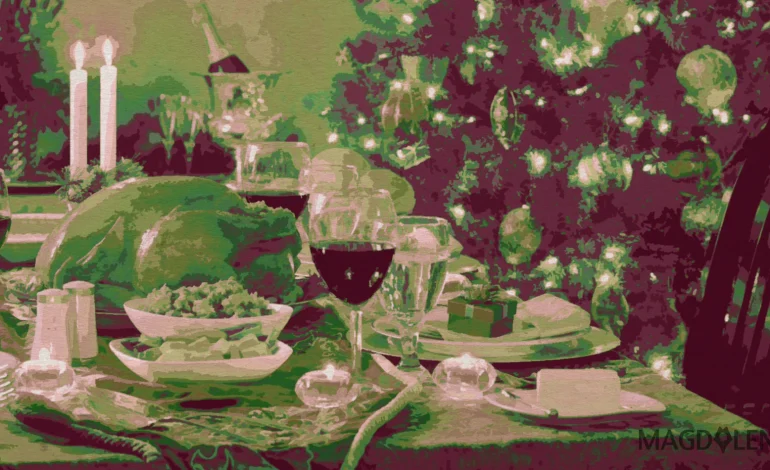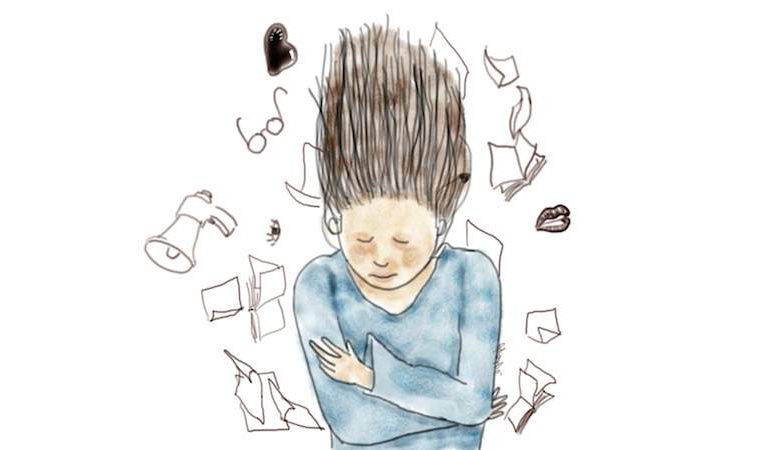Christmas Traditions: The Return of the Force of Life

It’s December and it is days away to my favourite holiday, Christmas.
Certainly it’s because I’m Christian and have spent my whole life in Christian tradition. But Christmas time has a global appeal beyond its religious meaning, and it is pretty easy to see why.
Certainly Jesus was not born on 25 December, or in Year 1. Perhaps Joseph and Mary was not a lonely couple when Mary had to give birth in a barn. And surely there was at least one female companion of Mary, as it is too cruel to think that soon the barn would be crowded by dudes like gift-bearing professors and shepherds, all surrounding the exhausted and bloody mother (OK, some of the angels must be women).
So why is Christmas celebrated on 25 December? The short answer is because it overwrites a pagan winter holiday. Not really, say modern theologians. December 25 is nine months after 25 March, the day when Gabriel tells Mary she’s, um, pregnant. I’m not sure that’s how pregnancy works, but it is about symbolism. The 25 of March is the Roman equivalent to Jewish date 14 Nisan, when all important events in Judaism take place.
But I’m more interested in the pagan winter holiday theory. December 22 is the winter solstice, the longest night of the year in the northern hemisphere. For most of human history, winter was the time when your death probability was significant. Therefore people embraced themselves for the risk with autumn festivals we know as Halloween, Double Ninth Festival, Diwali, Thanksgiving Day, and so on.
On the third day after winter solstice, you have presumably passed the worst. The winter will last for three more months, but here comes the sun. In the third century under the Roman Empire, Christianity competed with other Middle Eastern religions, and all had similar trope – the death and rebirth of a fatherless hero, who is raised by his loving mother (and lover, but that’s too crass for Christianity).
Christmas celebration has the element of Roman Saturnalia (party and gift exchange) and Invincible Sun victory party, Persian Mithra’s birthday, and later the German “I Survived Winter” celebrations, with the tree of life and the singing. Later on the figure of a beardy old man that gives out presents appeared, and by late 20th century Christmas has become a global celebration.
In my school, Christmas holiday was only 10 days long, but school was very bearable in December. Catholics don’t celebrate Christmas before the evening of 24 December, but the four preceding weeks are the Advent, the waiting period. Every Sunday several Christian churches light up a candle on a ring of leaves, a sign that Christmas is coming. Meanwhile, certainly there are bits of Christmas decoration on the bulletin board and in classrooms.
On more practical side, December means more class periods are shaved for Christmas specials – choir practice, drama practice (now several schools hold Christmas gala), and now post-exam activities. December rain could substitute the non-existent snow.
Meanwhile, there are plenty of Christmas entertainments. Christmas movies marathon, including the inevitable Home Alone. Christmas music marathon, including the inevitable Last Christmas and All I Want for Christmas is You. Christmas food, such as cakes, stuffed chicken (ayam kodok), and uh, hot chocolate?

Christmas is a source of stress for many people. There are people who are too lonely, too poor, and too sick to welcome Christmas happily. Even the affluent and healthy people feel the pressure of the holiday. Whether you decide to celebrate it at home or outdoor, too many things can go wrong. For people working in hospitality and retails, it can be the most overwhelming week of the year.
Among East Asian youth, Christmas is a very important time even for the non-Christians. The ideal scenario is spending Christmas Eve with a lover downtown, and Asian pop culture is full of stories of singles who wish for a date before the Christmas Eve deadline. In reality, most are happy to spend Christmas Eve with their friends (it seems that it’s not a family affair, and parents are happy to spend Christmas Eve at home).
The obsession with date-on-Christmas could become ridiculous for the rest of us, like a restaurant in Japan which banned couples from dining last year, to respect their single patrons. Of course Western readers asked “What if a senior couple wanted to dine there? The singles wouldn’t feel jealous, would they?” It’s a very logical question, but it seems that the management believed that older married couple wouldn’t hit the town on Christmas Eve.
While I don’t think I would have a Christmas Eve’s date, I wonder if I would continue my Christmas writing tradition. One is to buy a dozen of Christmas cards, write personalized greetings, and mail them.
The other tradition is to write a Christmas letter reflecting on the year and on my relationship with the person, which was fun when Facebook still treated its message feature as e-mail than instant message.
Certainly both options are mentally exhausting with mixed results. I think what I’m going to do this year is cleaning my Facebook friends list. I’ve had issue with it for years, which actually happens to plenty of people.
It would be a harsh Christmas activity – hiding or deleting friends who are not close to me, whom I added and approved just because we went to same school, or the same church, or have mutual friends. But perhaps that’s about changing yourself. You can’t be friends with everyone but you can become a good friend for some people.
Maybe that’s why people love Christmas. It’s about reflecting on the year we have gone through and looking back at our better moments – and hoping for a better year to come. Like people of the past, in Christmas we celebrate our survival – and the return of the force of life.
Mario breaks down the similarities between ISIS jihadis and Men’s Rights Activists here.






















